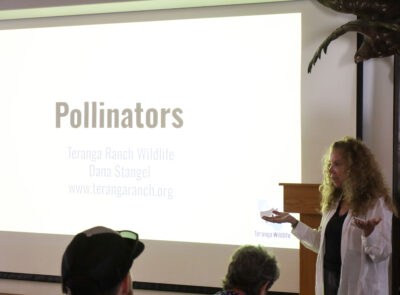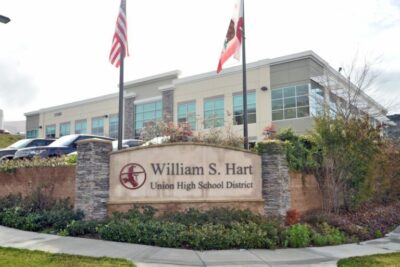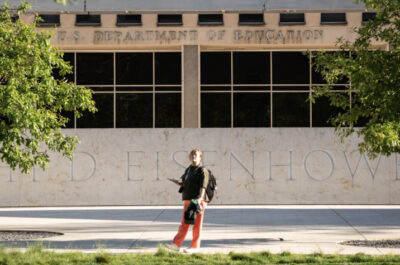Santa Clarita residents might have noticed a slight uptick in trashy social media posts recently, but local officials said there’s a simple explanation.
More than a few concerned residents have posted about rubbish-bin inspections from Burrtec, the city’s contractual waste-hauler. The posts complained about people looking at their waste and then leaving a doorhanger at their residence, indicating whether the bins had been properly sorted.
Conspiracy theories abound as the cause for the investigation; however, city officials said the inspections are the city’s compliance with the state’s organic-waste laws that took effect in 2022, and it’s more than likely most residents won’t notice anything.
That’s because the city is auditing the state-mandated 5% of its bins one week a year, a service that’s part of Santa Clarita’s deal with Burrtec, according to Darrin Seegmiller, city environmental services manager, in a phone interview Tuesday. He recalled seeing similar questions last year during the audit of unincorporated neighborhoods.
“Our primary goal is for education and so there are no citations being given, or anything like that,” he said. “It’s just, if someone does have contamination, then they’ll get a note that designates the proper way to dispose of waste. And so, this is really just about education and compliance with (Senate Bill) 1383.”

The law calls for the state to achieve a 75% reduction of organic waste from the 2014 level by this year. The idea is to reduce greenhouse gas emissions such as methane from local landfills.
The requirements are created by Senate Bill 1383, a law passed in 2016 that created a 3,500-word update of trash regulations.
Hundreds of millions of dollars have been spent on the effort since the law took effect in 2022 with mixed results.
Markets and food service businesses have a food-recovery goal this year of 231,000 tons, and in 2022, they reported hitting 87% of that goal, according to an industry website. However, The Little Hoover Commission also reported the state is approximately 8 million tons shy of the capacity needed to meet its goal for the diversion of organic waste.
While the law creates a mechanism that allows the city to raise fines that would cover the cost of its enforcement, Seegmiller said that’s not the city’s goal at the moment.
“It’s really just about education, and to that end, we send out a postcard to all of the properties who are potentially going to be audited in the weeks leading up to the audit,” Seegmiller said, “so that they can be prepared for it.”








